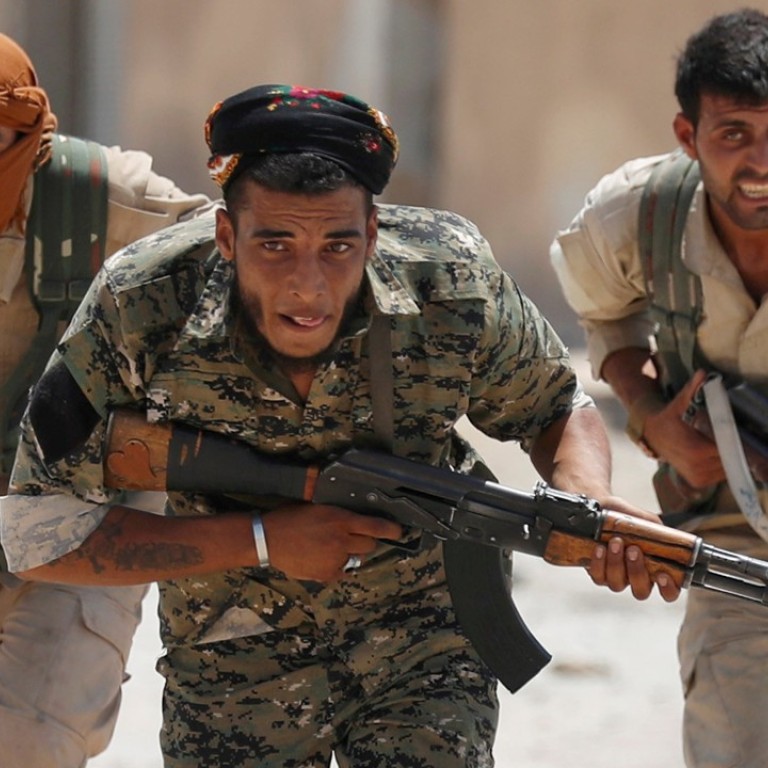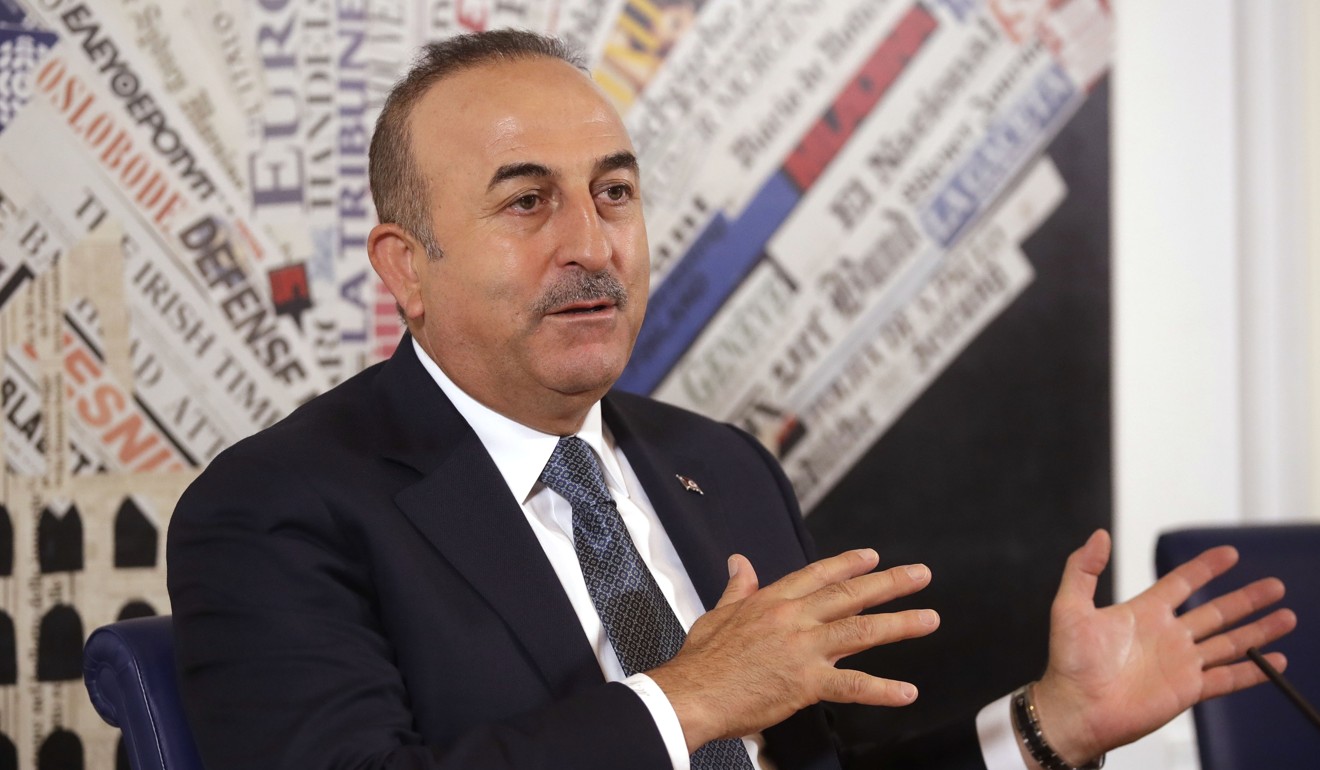
US President Donald Trump tells Turkey that his government will stop arming Kurdish fighters in Syria
The decision to stop arming the Kurds will remove a major source of tension between the US and Turkey, a Nato ally
The Trump administration is preparing to stop supplying weapons to ethnic Kurdish fighters in Syria, the White House acknowledged on Friday, a move reflecting renewed focus on furthering a political settlement to the civil war there and countering Iranian influence now the Islamic State (IS) caliphate is largely vanquished.
Word of the policy change long sought by neighbouring Turkey came on Friday, not from Washington but from Ankara. Turkish Foreign Minister Mevlut Cavusoglu told reporters at a news conference that President Donald Trump had pledged to stop arming the fighters, known as the YPG, during a phone call between Trump and his Turkish counterpart, Recep Tayyip Erdogan.
“Mr Trump clearly stated that he had given clear instructions, and that the YPG won’t be given arms and that this nonsense should have ended a long time ago,” the Associated Press quoted Cavusoglu as saying to reporters following the call.
Initially, the administration’s national security team appeared surprised by the Turks’ announcement and uncertain what to say about it. The State Department referred questions to the White House, and hours passed with no confirmation from the National Security Council.
In late afternoon, the White House confirmed the weapons cut-off would happen, though it provided no details on timing.
“Consistent with our previous policy, President Trump also informed President Erdogan of pending adjustments to the military support provided to our partners on the ground in Syria, now that the battle of Raqqa is complete and we are progressing into a stabilisation phase to ensure that IS cannot return,” the White House statement said, referring to the recent liberation of the Syrian city that had served as IS’s de facto capital.
Mr Trump clearly stated that he had given clear instructions, and that the YPG won’t be given arms
The decision to stop arming the Kurds will remove a major source of tension between the US and Turkey, a Nato ally. But it is likely to further anger the Kurds, who already feel betrayed since the US told them to hand over hard-won territory to the Syrian government.
Turkey has pointed to the YPG’s affiliation with the Kurdistan Workers’ Party – a Kurdish rebel group that has fought the Turkish state for decades – as evidence of its terrorist ties. The YPG, which formed amid the chaos of the Syrian civil war, has worked with US forces to oust IS from key areas there.
The Obama administration began arming the Syrian Democratic Forces, which is dominated by the Kurdish YPG militia, because they were considered the most effective fighters against IS militants.
The phone call between Trump and Erdogan followed a summit on Syria held this week in Sochi, Russia. It was attended by Erdogan, Russian President Vladimir Putin and Iranian President Hassan Rowhani. Russia and Iran backed the government of Syrian President Bashar al-Assad and helped Syrian forces to rout IS.
The two powers, along with Turkey, have forged an alliance that is advancing its own peace plan, in which the US would play little role beyond being an observer. They have said US troops should leave Syria now that IS’s defeat appears imminent.
But a US withdrawal without a peace plan well on its way would be victory for Assad, and by extension, Iran and Russia.

So US officials have said they plan to keep troops in northern Syria – and continue working with Kurdish fighters – to pressure Assad to make concessions during peace talks brokered by the UN in Geneva, stalemated for three years now.
“We’re not going to just walk away right now,” Defence Secretary Jim Mattis said last week.
James Jeffrey, the US ambassador to Turkey from 2008 to 2010, said the decision to cease supplying weapons to the Kurds appears to reflect an evolving strategy to keep playing a productive role in Syria and weaken Iranian-backed militias and Hezbollah, both of which fought alongside Syrian forces to regain territory from the militants.
“Fighting IS was such a priority, we had to focus on that before other things,” he said. “Now as the conventional fight is over, we’re trying to come up with a bigger policy. We can’t do it without Turkey. It’s pure geography. We have to mend fences with the Turks if we want to remain in Syria.”

